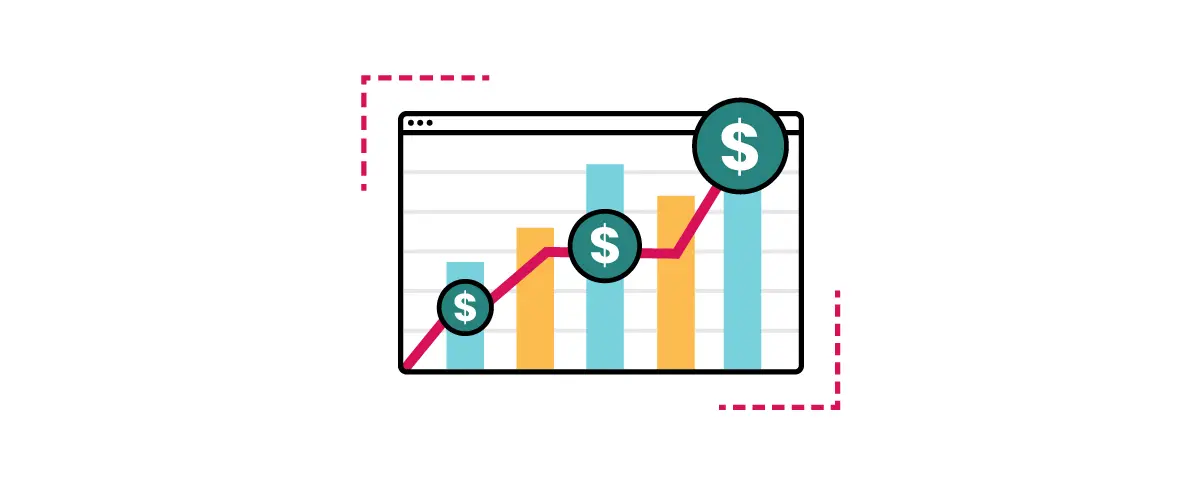A new year brings to light things that didn’t get done the previous year and builds anticipation for what we’ll do to push our organization forward. At the top of most marketer’s list has something to do with the website. For some it’s a rebuild thus the impetus for a website RFP, for others it’s a roadmap of improvements to make on the current website.
I’ll speak to those of you that are in the market for a rebuild since that feels scarier and daunting. It doesn’t have to be though. RFP preparation, asking the right questions, and stakeholder alignment are the three ingredients that usually lead to a successful agency selection process, and thus, a good end result.
We’ve been on the receiving end of very good and very bad RFP documents. In many cases, we’ve built the website requirements document for clients during the discovery phase to help them understand what they want. I say RFP document, but this term can be interchangeable with a document that outlines goals, requirements, and questions you want agencies to answer.
Don’t get me wrong – these documents are time consuming to put together. They require a lot of meetings with company leadership to make sure all stakeholders are aligned.
Answer these 7 questions in your website RFP to get the best agency submissions. We’ll break each one down below.
- What are your project objectives?
- What does the landscape of your market look like and where does your company fit in?
- What is your marketing strategy?
- What are the characteristics of your brand (brand principles, visual, tonal)?
- What is in scope, out of scope, table stakes, and optional line items?
- What questions do you need agencies to answer?
- What is the suggested budget and timeline?
What are your project objectives?
List the reasons why you are rebuilding the website. What performance benchmarks are you missing and hoping to achieve with the new website? How do you prefer the site to be built? Will you need an agency that can provide interim support while rebuilding the new website? List who will be the day to day contact and all project stakeholders.
What does the landscape of your market look like and where does your company fit in?
The goal of this question is to help agencies understand who you are, what problems you solve, how your products and services are unique to the market, industries you serve, and customer personas you target. This might seem like information the agency should look up on your website. Creating this website RFP document gives you the chance to have this information be as up to date as possible fresh off of meetings with stakeholders. Answers to these questions catch agencies up to speed quickly so that they have a clear picture of your business.
What is your marketing strategy?
Agencies need to know where the website fits into the overall marketing plan. Is the website something pretty that sits on a shelf that nobody touches? Does the website have a big conversion rate optimization focus? How does the website need to change to better fit into your marketing strategy? What key marketing metrics are you hoping to produce out of the website (increase in pipeline, page views, content consumption)? You’ll want to establish how the website fits into the bigger picture here.
What are the characteristics of your brand?
Give an inside look into what principles make your company unique. What principles make your company unique? How do you want customers to perceive your company? Alongside answering questions about the DNA of your brand are questions concerning the visual elements. What are the visual principles of the brand? Do you have a brand book available? Agencies will need to know these answers. In addition, what is the tone or voice of your brand? Designers not only need to know the visual principles, they also need to know tonal principles so that the design creates fluidity between the two.
What is in scope, out of scope, table stakes, and optional line items?
Many companies have several web properties – note which ones are in scope. Be upfront about things that are out of scope. For example, maybe you have a separate knowledge library on another site that doesn’t need to be touched. Address other large conversation points like copywriting, integrations, interim support, user stories, animation usage, CMS setup, security, ADA compliance, CRM/Marketing Automation, form handling, script handling, on-site search, personalization, and translation. This is a huge list, but will save the back and forth of figuring out how you want to handle all of these details. Don’t be afraid to ask for optional line items for the agency to quote out and weigh the pros and cons of including those in the rebuild or if they’d be better for phase 2.
What questions do you want agencies to answer?
Providing questions for agencies to answer will help you vet them prior to jumping on an introductory call. It will help you create a short list of agencies to consider. Here is a short sample of questions that are worthwhile asking:
- Provide an overview of the steps your agency will take to build our website.
- What is your approach to building best-in-class scalable websites?
- What is your project management methodology for large website rebuilds?
- Who will be involved in the project? How will our account be staffed?
- How will you expand and reinforce our brand principles on the web?
- Please provide an example or case study of how you have helped a client build a website that has increased annual pipeline. What was your approach towards achieving that?
- How do you drive efficiencies and maximize resources and budget?
- What metrics will you use to measure success?
- How will you be able to provide support on the existing website while building the new one?
What is the suggested budget and timeline?
Indicate what date range you’d like the website to be launched by. Deadlines help agencies decide if they can respond to the RFP depending on their bandwidth. Ask the agency to provide a high level roadmap indicating phases, milestones, and stakeholder reviews. It’s unrealistic to expect the agency to hit all dates listed in the timeline during the RFP process. Their timeline will help you gauge how much time they intend to spend on certain aspects of the rebuild. Finally, ask for a budget range. Again, very difficult for an agency to hit the nail on the head with pricing. After reviewing RFP submissions, schedule follow up calls to field questions from the shortlist of agencies. That will help them firm up the price.
The effort you put into the website RFP has a direct correlation on the success of the agency selection process reducing the risk you take on the project failing.
The purpose of creating a website RFP for a new website is threefold. First, to get stakeholder alignment on the goals and requirements of the project. Second, to document all of those requirements thoroughly. Third, to line-up the agencies you think would be the best fit for the project based on their answers to the questions provided in the website RFP. The work you put into the RFP, including the format and design of the document itself, will show through the quality of the responses you receive.
The primary goal you have is to select an agency who is the best fit for your needs short and long term. That might mean that you avoid specific types of agencies. Move forward with an agency that reduces the perceived risk of the project failing. That choice might not yield the lowest cost.
Motion Tactic headquartered in Tempe, AZ, focuses on custom WordPress design and development for B2B brands. We help B2B brands uncover their long term vision for their website with follow through execution services.


